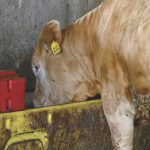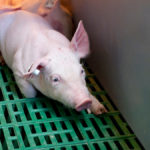Tag Archives antimicrobial resistance

Meeting of the minds supercharges Canada’s fight to protect antimicrobial drugs
Doctors and veterinarians could lose important antibiotics and other medications to antimicrobial resistance. One Canadian project brings researchers from different fields together to join forces

Smart deworming starts with individualized fecal egg counts
Ontario Sheep Farmers’ hands-on workshop equips producers with fecal egg count skills to manage resistance, reduce costs, and improve flock health

Quick test could improve treatment decisions in cattle
Researchers use water troughs to monitor resistant bacteria

Enzyme can switch off livestock drugs
An antimicrobial gene in bacteria creates an enzyme that can deactivate certain medications used to treat livestock

New class of antibiotics found to fight antimicrobial resistance
Science Notes: WHO has declared AMR as one of the top 10 global public health threats

What’s old is new again in bacterial control
Bacteriophages are finding more uses in food processing, but not yet in internal medicine

Antimicrobial monitoring project gets support

Antimicrobial monitoring project gets support

Hog farmers continue to reduce antimicrobial use
Five-year study shows 57 per cent of participating farms decreased their antimicrobial use

Bacteria found in ancient Irish soil halts growth of superbugs
Science Notes: The discovery offers new hope for tackling antibiotic resistance


